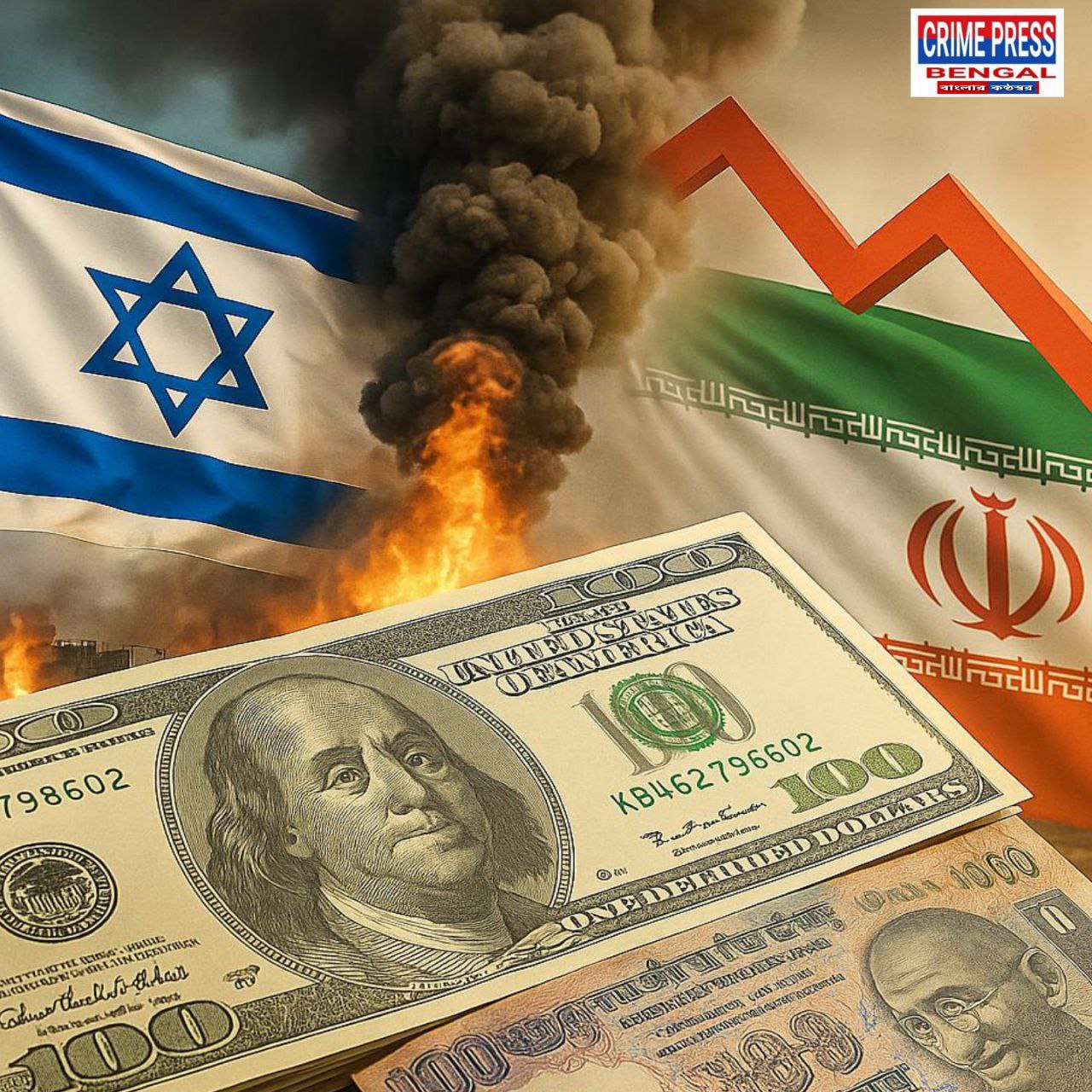Israel-Iran war
How Israel-Iran Conflict Could Impact India: From Oil Shock to Strategic
With Israel and Iran locked in open conflict, global oil markets are spiraling. As crude prices surge and the Strait of Hormuz faces risk, India braces for a domino effect on inflation, trade, and currency stability. A geopolitical flashpoint may just become India’s biggest economic test of 2025.

June 15, 2025 | Reporter: Santanu Maity.
Overview of the Conflict
• Israel has launched sudden airstrikes on Iranian nuclear and military installations.
• Iran retaliated by targeting Israeli cities, including Tel Aviv.
• The Strait of Hormuz — a crucial energy corridor — now risks becoming a conflict zone.
Impact on Oil and Energy
• Oil Prices Surge: Brent crude surged over 12%, reaching $78 per barrel — a five-month high.
• Supply Risk: Although India imports little oil directly from Iran, nearly 80% of its oil needs come from West Asia, with Iraq, Saudi Arabia, and UAE as top suppliers.
• Strait of Hormuz Risk: Around 20–25% of global oil and LNG flows through this route. If Iran threatens or blocks it, India’s oil and gas supply could be delayed or costlier.
• Domestic Fuel Prices: A rise in global prices might push fuel costs up in India, impacting transport, logistics, and consumer goods.
Economic Ramifications
• Rupee Under Pressure: The rupee has already weakened, crossing ₹86 per dollar due to higher dollar demand for oil imports.
• Inflation Worries: India’s low May inflation rate (2.82%) could reverse. Rising transport and input costs may trigger a fresh price surge in essentials.
• Policy Challenges: The RBI may delay interest rate cuts, and the government might face pressure to reduce excise duties on fuel, impacting revenue.
• Sectors at Risk: Downstream industries like paints, chemicals, tyres, and aviation face input cost hikes. MSMEs may suffer margin pressure.
Geopolitical and Strategic Dimensions
• Chabahar Port’s Strategic Dilemma: India’s $500 million investment in Iran’s Chabahar Port — meant to bypass Pakistan and access Afghanistan and Central Asia — now faces renewed geopolitical risk.
• India’s Diplomatic Tightrope: With strong ties to both Israel and Iran, New Delhi must tread cautiously to maintain energy security and diplomatic balance.
• Regional Escalation Risk: If the conflict drags in Gulf nations, India’s remittance flow, trade routes, and diaspora security could be jeopardized.
Market Reactions
• Sensex Falls: Indian stock markets slipped over 570 points due to global uncertainty.
• Gold Prices Climb: Domestic gold crossed ₹1 lakh/10g, as investors shift to safe-haven assets.
Key Takeaways
• Short-term Outlook: Volatility in oil prices, rupee, and inflation likely in coming weeks.
• Mid-term Risks: A broader war in West Asia could hurt India’s trade, energy security, and fiscal stability.
• Policy Watch: RBI, Ministry of Finance, and MEA will play critical roles in managing the fallout.



Comments